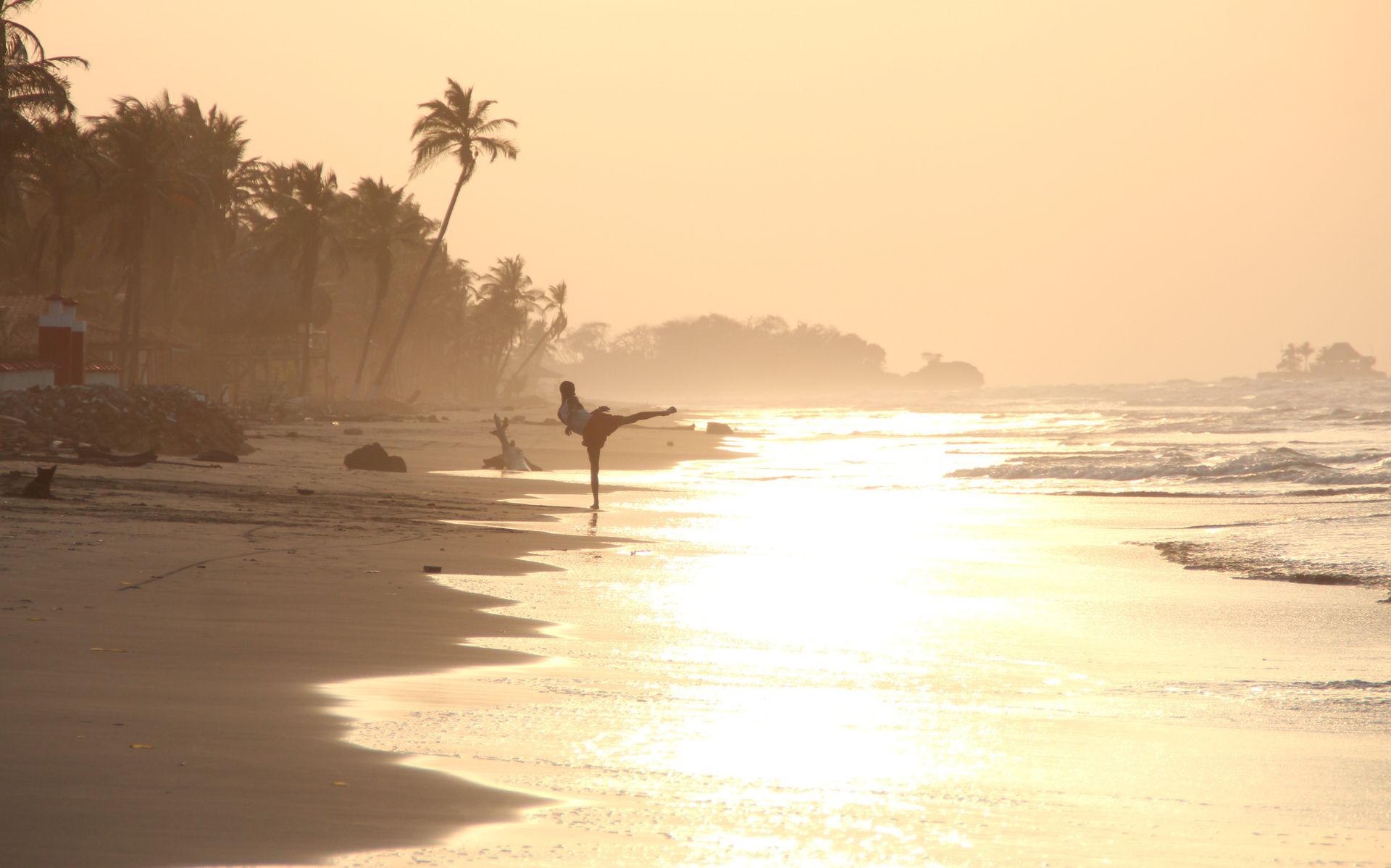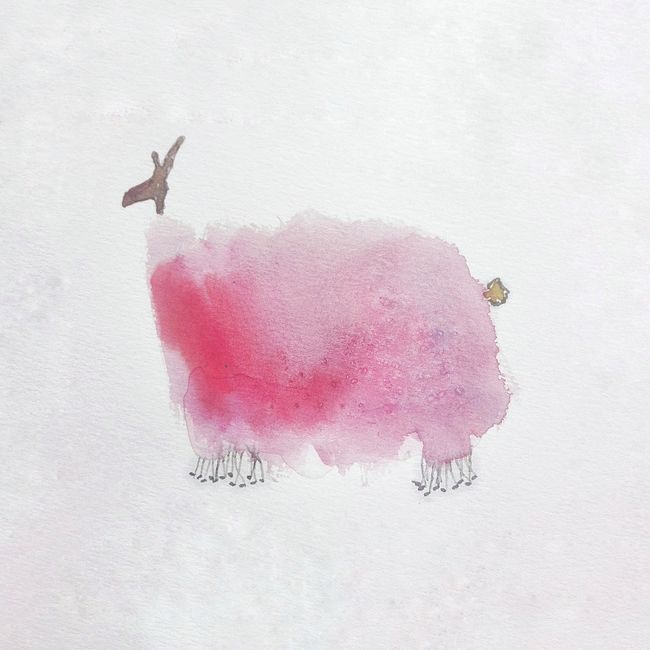Cochabamba - Four Weeks in the SOS Children's Village
প্রকাশিত হয়েছে: 15.01.2019
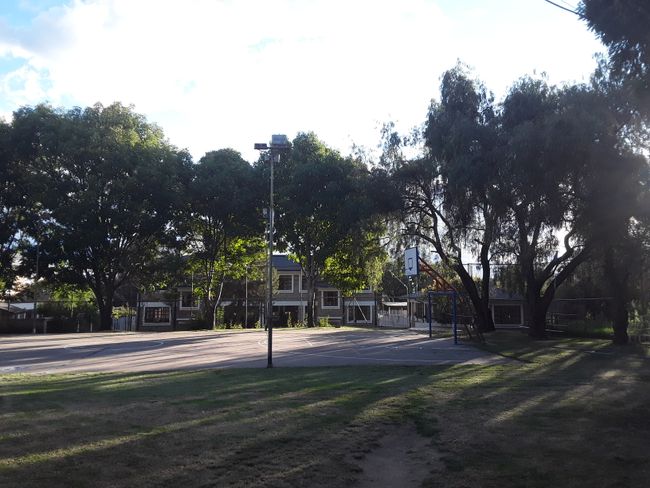
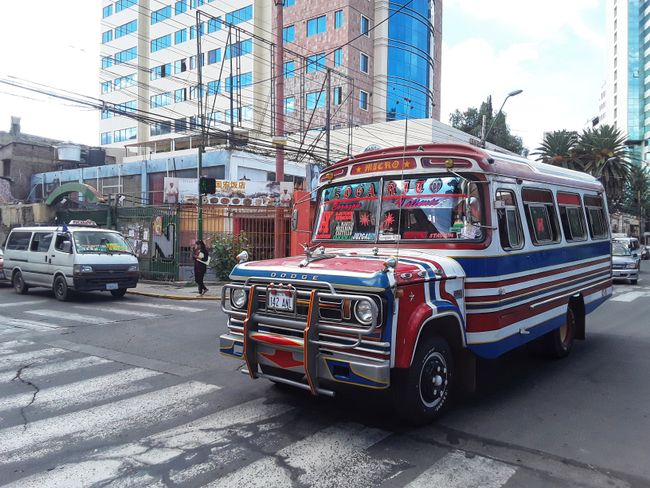
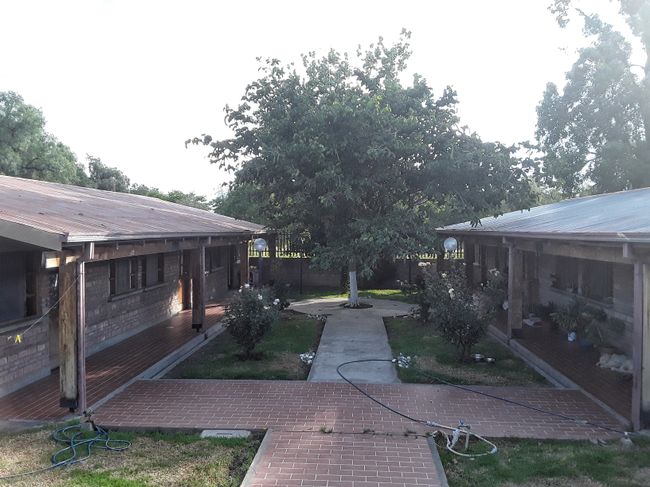
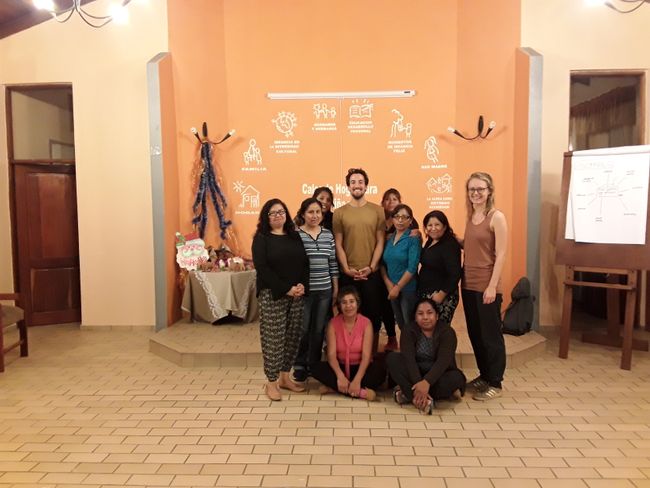
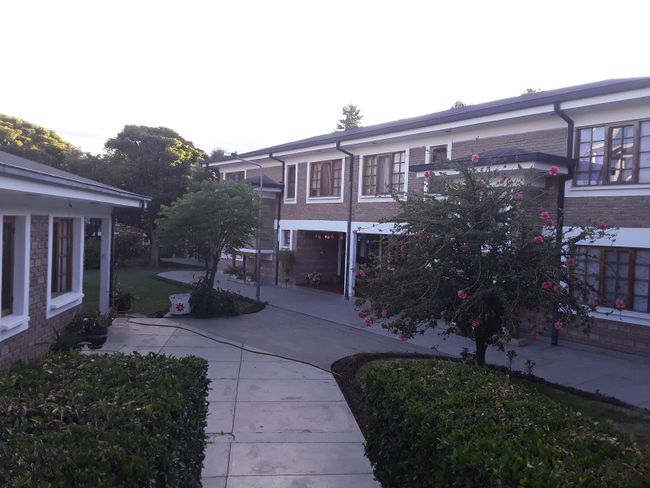
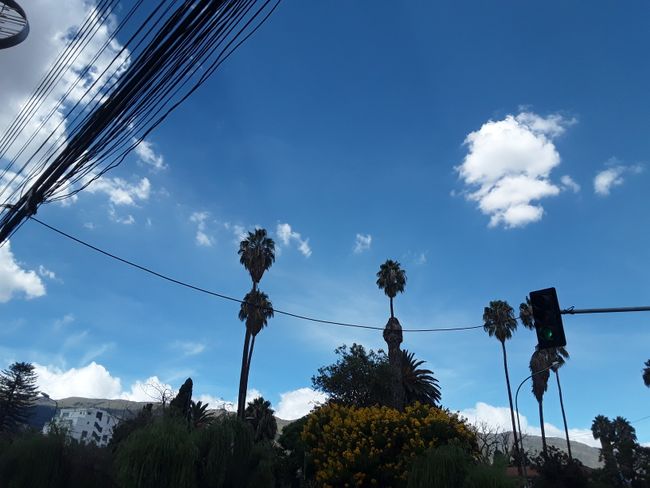
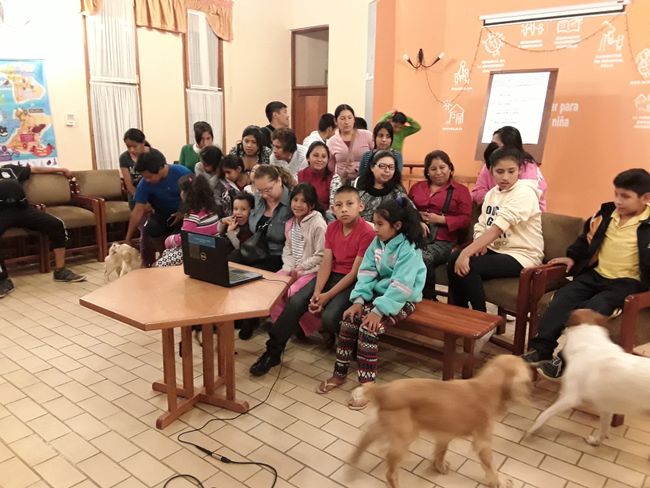
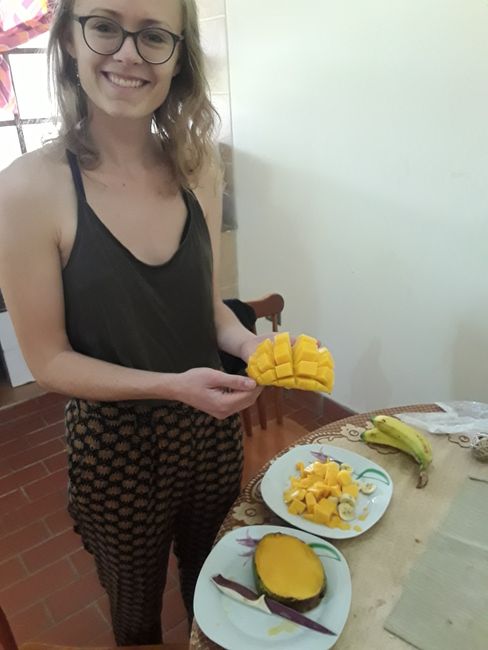
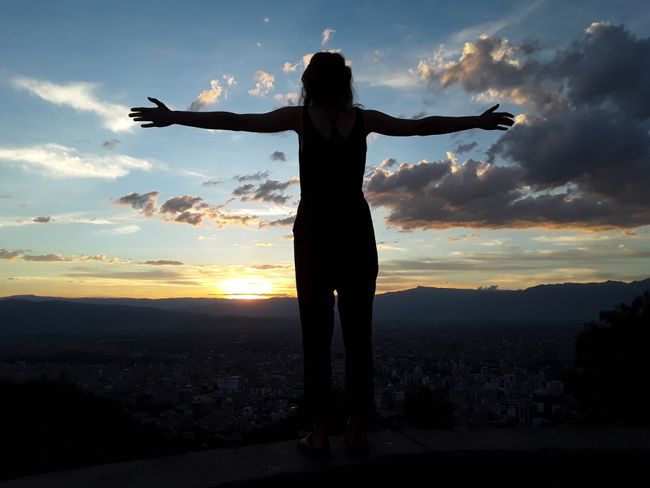
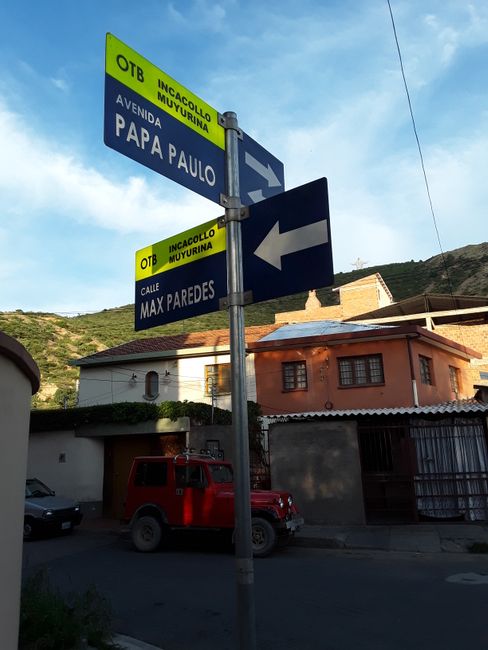
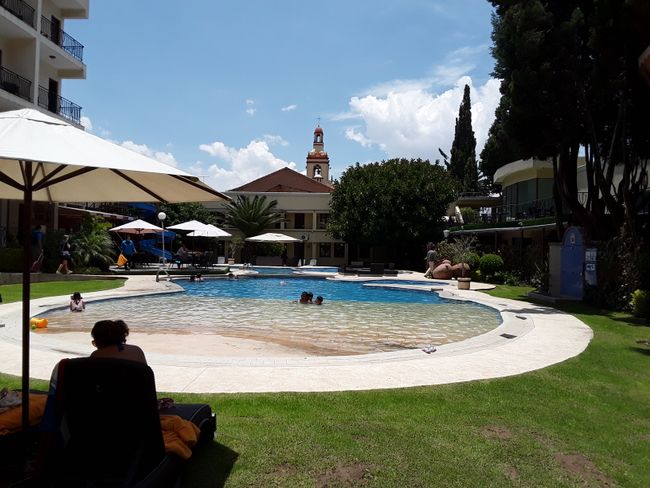
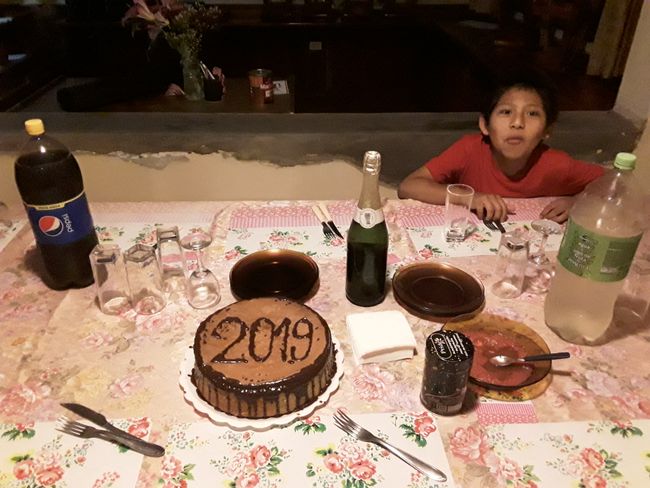
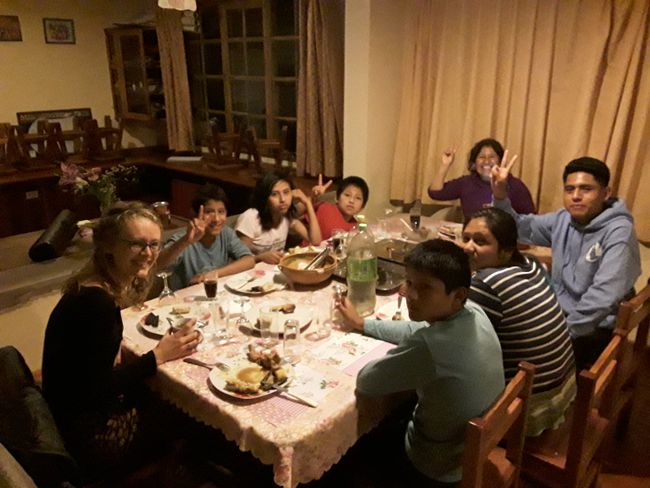
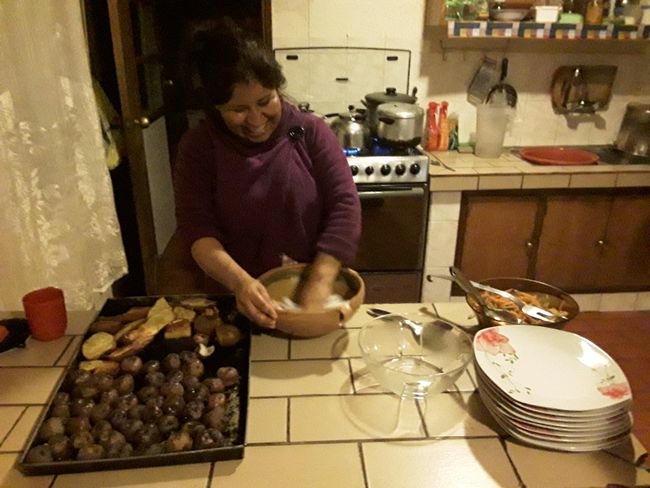
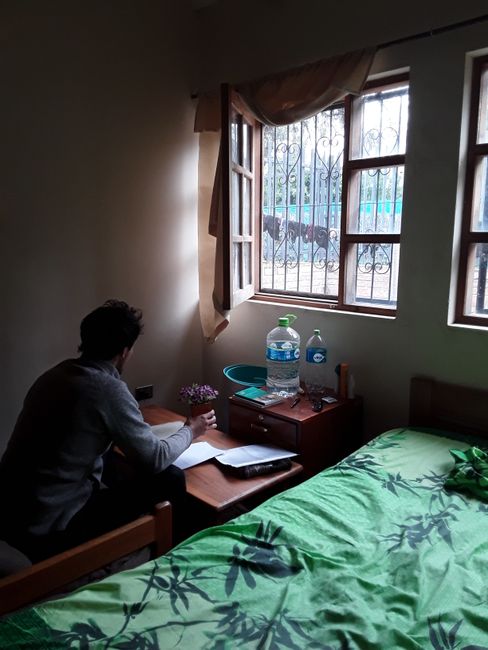

নিউজলেটার সদস্যতা
Every time we awkwardly open the padlock to the 'Casa de las abuelas' part of the children's village where we live, the dog with the neck collar comes barking towards us. Followed closely by Claudia or Ingrid, the twins of unknown older age (they said they were five years old), who still live in this part of the children's village because they have a mental disability. They always inform us about the latest news in this small cosmos, for example, they enthusiastically point out that the gardener has freshly mowed the lawn or with a sad-angry expression, they mention that the dog made Claudia fall and she hurt her arm. Every time, we enter our small apartment, delighted by their open and loyal hearts, and we are greeted by that typical slightly musty smell of the children's village, which somehow just belongs.
We have been here for almost three weeks now. In the SOS Children's Village in Tiquipaya, a town on the outskirts of Cochabamba. The rather non-touristy city has a population of 1.8 million and is located at an altitude of about 2500m, surrounded by impressive brown mountains. The children's village consists of 14 families who live in beautiful semi-detached houses in a green oasis that stands out so much from the noise and exhaust fumes of this bustling city. Each family consists of a 'mama', who lives with 6 to 10 children for six days a week, just like in a real family. On their day off, 'tías' (aunts), trained women who may also be 'mamas' one day, come to help. The children are in the children's village for various reasons, whether it is because they have lost their parents or their parents cannot take care of them due to other circumstances. They are allowed to stay with their biological siblings with the mothers, of course.
Attached to the children's village is the mothers' training center, a daycare center, and the office for social workers and psychologists who work with the families. Things can get a little chaotic, but overall, it is clear that the children's village is extremely well-organized and has very good financial resources compared to Bolivian standards. This is due to the support of large companies as well as the sponsorships of private individuals, each child here strangely has up to ten sponsors. A boy here shows us letters and photos from a Belgian family, and I feel a deep contrast between this child's situation and that of their sponsors. And yet, life in the children's village is so everyday and normal that the cautious wording in the family's letter, which implies a subtle embarrassment about the differences, seems bizarre.
Five years ago, I spent half a year in this children's village. Back then, I organized a circus workshop with the children, we baked Christmas cookies, practiced English, and made bracelets. It was a very intense time full of experiences. On the one hand, I was overwhelmed by homesickness almost every day, and on the other hand, I was grateful to be able to experience this warmth and completely different life. I was really excited to come back here almost three weeks ago and find many things just as I left them, recognizing children who have naturally grown a lot. Interestingly, now, a few years later, I feel similar to how I felt back then: intense homesickness on the one hand, but also a familiar feeling and gratitude for having lived here before and being able to come back.
What is the reason for this sad mood, this intense longing for home? On the one hand, while traveling, I often realize how comfortable I feel at home in Marburg and Hannover, and how important roots, friends, and family are to me. Perhaps, on the other hand, it is also the special sadness here, which is reflected in some faces and destinies, which lingers in the corners of dimly lit rooms and also sticks to me. The simplicity and sometimes lack of perspective that weighs on the people here. And then again, there is that warm and joyful attitude that characterizes many here. When children simply run towards me, rolling their 'Rrrrinja' (they can't seem to pronounce my name correctly), hug me, and ask when we will bake cookies again. Or when Eli, a mother and above all a good friend, has tears in her eyes when I say that I came back mainly because of her and the children. A rollercoaster of emotions.
Our start here was a bit difficult. After a night in the hostel because we arrived earlier than announced, and with complete excitement to be back here, recognizing street names and cafes, and rediscovering this vibrant city, we didn't feel well. I got so sick from a food binge that I couldn't even sit properly for a day, I felt so terrible. Unfortunately, it lasted for several days, including New Year's Eve, so we stayed in our flat, and Paul got passively sick and also felt miserable.
So our start to the new year was calmer than expected. At 7 p.m., which is midnight German time, we danced on our terrace into the new year and thought of all our loved ones who were probably very present in Germany at that moment. It was really nice to have you in our thoughts, so close to us! We then had dinner with Eli and her family and chatted comfortably, while the children already went to bed. At midnight, we toasted outside with champagne and watched the fireworks, which many people here illegally set off into the sky. Even 12-year-old Saul, half disgusted and half cool, came out of bed in a sleepy state, downed his glass of champagne without saying a word, and then went straight back to sleep.
Despite the health problems, we started our first dance workshop with eleven highly pubescent children on January 2nd, which kept us busy for eight days. Last Friday, we had the dance performance, and now the second day of our second dance workshop in the second children's village in downtown Cochabamba is already over. But more about that from the sports educator himself in an upcoming blog entry.
Anyway, then Paul got sick again on our first weekend off from work because he caught something this time. All in all, it was a bumpy start. But it had something good too: we saved a lot of money during this time because we didn't need much food and missed out on leisurely afternoons of strolling around, so we can now enjoy spending it even more.
And now a few words about Bolivia. It is one of the poorest countries in South America and is currently suffering from quite strong inflation, as a business administration student girl in the children's village told us. The indigenous socialist president Evo Morales, former leader of the coca farmers, has been in power for 12 years. We have heard various things about him: students from wealthier families and entrepreneurs we talked to find him impossible because he creates poor conditions for private companies. There is fear of nationalizations. Currently, there is even a nationwide hunger strike demanding his resignation. On the other hand, others praise his social achievements, such as introducing a system where every family receives money if a child has been present for a school year and has not skipped school too often, which often happens because children help their parents earn money. One thing he has certainly achieved is that the indigenous population has become more self-confident and is no longer as ashamed of their roots.
Here, you see countless children running between market stalls, some selling candies or carried on the backs of their mothers in beautiful colorful cloths, seemingly without hindering their daily activities. How different is the picture in Germany, where the birth of a child often represents a deep turning point in a person's life and seems to push many other things into the background for several years. Women here also have significantly more children than in Germany, on average 2.9, and depending on their social background, even more (compared to 1.4 per woman in Germany). When we were looking for condoms and could only find them in pharmacies and saw the high prices there, a lot became clear to us. The pill also seems to cost a small fortune here, and abortions are illegal. Perhaps the prevailing Catholic Church here is making its mark...
When it becomes apparent that we are a couple, we are often asked if we are married. When we answer no and mention that we live together in Germany, we often see puzzled faces. This unchaste way is seen as reprehensible, at least in some social circles here. Even when couples get married, often very early, they often continue to live in the house of one of the parents.
Oh yes, and the Bolivian food... A carbohydrate dream accompanied by meaty bliss. It is difficult to find a traditional dish 'sin carne' (without meat) or with a lot of vegetables. Except for the obligatory delicious soup, which is always served as an appetizer. It is followed by rice, corn or potatoes with a big piece of meat. The meal is rounded off with a glass of cola or another 'resfresco', a heavily sweetened drink with oats or peaches, for example. Drinking water with meals is unusual.
During the first 8 days of our dance workshop, we were invited to have lunch with different families. It was a great opportunity to connect with the mothers and children. It was funny and somehow touching to see how my vegetarian diet sometimes really puzzled them. So most of the time, the main course consisted of a well-intentioned generous plate of rice with a few (according to Paul, 'few') slices of tomatoes and raw onions, accompanied by, for example, canned fish on good days. Or sometimes just lentils. The mostly missing sauce sometimes upset Paul a bit, and it brought back nostalgic feelings for me to have these rather dry meals, and I tried to convince him that it is part of the cultural experience.
Finally, we are not surprised that probably more than half of the people here are significantly overweight. Almost everyone here has one or more extra rolls of fat around their bellies, it's really noticeable. It is also evident in the lack of opportunities for physical activities. For example, there is little nature here that invites you to take a walk or engage in sports, we had to search for a long time, even the receptionist at a 5-star hotel couldn't help us until we found a place to take a breath of fresh air and go hiking. And we were the only people there.
In general, life here goes on at a rather leisurely pace. Just like in Peru, you rarely see rushed people, except maybe in traffic, where you sometimes have to run across the street to avoid getting run over because the drivers here seem to compensate for the laid-back nature of their lives with their crazy driving style. Often, we meet such radiant, thoughtful, and warm-hearted people in a kiosk by the roadside that we happily step back outside with the feeling of a real encounter.
We talk a lot about what constitutes a good life for us. Here, we certainly learn to appreciate the value of our permeable social system in Germany, our perspectives, and all the possibilities... And yet, so much of the quality of life lies in the attitude, the way of accepting life, being grateful and present. The meaning of humility can truly be experienced from the attitude of many people here. Surely, we can learn a lot from them!
নিউজলেটার সদস্যতা
উত্তর
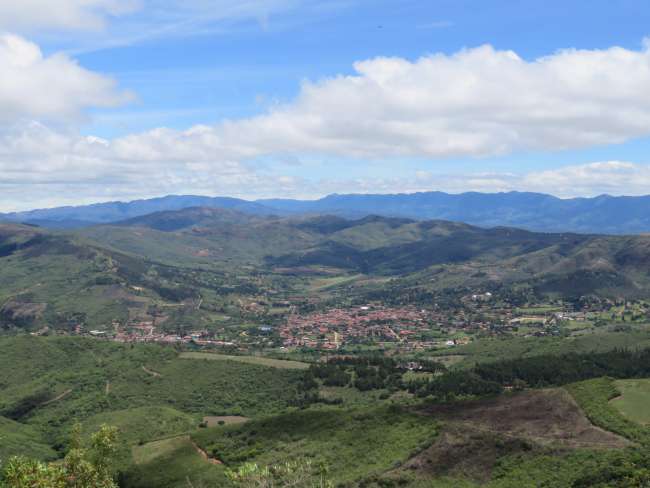
ভ্রমণ রিপোর্ট বলিভিয়া
